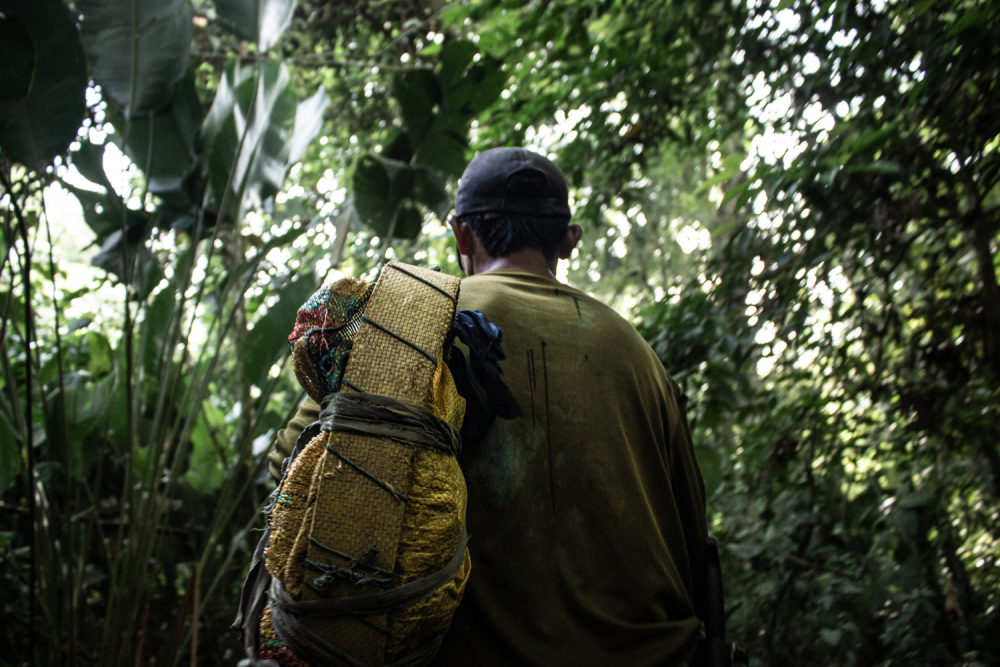Drugs & (dis)order research featured in a Colombian constitutional court ruling on the national illicit crop substitution program


Colombia’s Constitutional Court recently ruled yet again in favour of farmers who signed up to participate in the country’s National Illicit Crop Substitution Program or PNIS (its acronym in Spanish), which was born of the 2016 Peace Accords.
A crop substitution programme on trial
As detailed in Case T-172 of 2024, the Afro or Black Community Councils of Alto Mira & Frontera and of Ancestros del Río Mejicano, both located in the Municipality of Tumaco, had lodged separate legal demands (tutelas) against several entities of the National Government. The claimants said the Government had violated their fundamental rights (including the right to due process, the vital minimum, equality and life) by breaching the collective agreements it had signed with them, in 2017 and 2018, and later with individual families from their communities.
Among other infringements, they pointed to (i) the unfair exclusion of families who could not travel (due to the high cost and/or the short notice given) to the urban centre of Tumaco to register as participants in the program; (ii) non-payment of the promised cash subsidies to registered participants; (iii) non-implementation of the productive projects promised to registered participants; and (iv) the arbitrary removal and suspension of many families who had been registered.
These infringements, which were common across the country – see e.g. our article on PNIS failures in Putumayo –, had serious impacts on the communities. The cash subsidies were supposed to temporarily compensate the immediate loss of income participants endured after eradicating their coca crops. In Río Mejicano, some 348 families never received a single payment and many more received only part of the money promised. Similarly, in Alto Mira & Frontera, as of 2021, more than 1,500 families had not received all their payments.
Meanwhile, the Government was supposed to help participants establish alternative income-generating activities to replace coca cultivation, by providing material inputs and technical assistance, among other forms of support. The productive projects were essentially the substitution component of the program. Not a single project was implemented in Río Mejicano and just 165 of 4,919 families received a small part of the project support promised in Alto Mira & Frontera. In sum, these families having agreed to uproot their coca in exchange for government assistance, didn’t receive the promised package. Many were totally reliant on their coca crops to feed their families and were left hungry when the government failed to meet its side of the bargain.
A long way to the new ruling
An initial ruling from October 2022 favoured Alto Mira & Frontera but this was struck down in February 2023. Río Mejicano’s demand was rejected in the first and second instance in August and October 2022. Both demands were selected for revision by the Constitutional Court and, given their similarity, were studied together and treated as a single case.
The Constitutional Court overruled previous rejections of the demands, favouring the Community Councils of Alto Mira & Frontera and Río Mejicano. Among other specific orders, it established (i) that the removals and suspensions from the PNIS referred to in the case are not legally valid and thus that the affected families must be returned their status as active participants registered in the program, (ii) that the Agency for Territorial Renovation must adopt concrete measures towards compliance with the PNIS agreements signed with these Councils within 6 months, and (iii) that the Government must assign sufficient resources to enable implementation of these measures.
The new ruling refers to a previous one (SU-545 of 2023), which brought together several demands related to the PNIS from different parts of the country and set important precedents. For example,
... the Court had ruled that - under the 2016 Peace Accords - the Government is obligated to attempt voluntary substitution before resorting to forced eradication.
This earlier ruling also already established that the removal or suspension of people from the PNIS program must respect due process laws and that, contrary to what several government agencies and representatives have suggested, the PNIS agreements are binding for both parties.
The role of the drugs and (dis)order project and CIVAD
Like past court rulings on the PNIS, Case T-172 of 2024 refers to Drugs & (dis)order research findings and draws on the expertise of CIVAD associates. Drugs & (dis)order was a four-year initiative led by SOAS and funded by UK Research and Innovation via the Global Challenges Research Fund. It focused on the challenge of transforming drug economies into sustainable peacetime economies in the aftermath of conflict, conducting research in the borderlands of Afghanistan, Colombia, and Myanmar.
The Centre for the Study of Illicit Economies, Violence and Development (CIVAD), based at SOAS, is a legacy of this programme, and a hub for researchers and research organisations working on different aspects of illicit economies across the world.
During Drugs & (dis)order fieldwork, researchers from The National University of Colombia team and The Land Observatory of which they are part (especially but not only Bryan Triana, Diana Machuca, Sebastián Cristancho and Mónica Parada), assisted communities with the development of legal demands or tutelas, including those considered in this case, those of Río Mejicano and Alto Mira & Frontera. After Drugs & (dis)order ended, The Land Observatory continued to be involved in these cases, offering arguments and information to the Court.
Among other things, the Observatory highlighted that the Drugs & (dis)order research program generated ample evidence of the Colombian Government’s systematic failure to meet its obligations under point 4 of the Peace Accords.
The Observatory’s arguments also drew on specific findings from Drugs & (dis)order, especially from the research on Tumaco, some of which is summarised in this special report: “We eradicated coca. Now what?”.
It’s been at least seven years since the people of Alto Mira & Frontera and Río Mejicano uprooted their coca, and with it one of their main livelihoods, and they are still waiting…
Header image: Dr. Frances Thomson
About the author
Dr. Frances Thomson is an independent researcher and consultant specializing in land tenure and the agrarian political economy in Colombia. She previously worked with the Drugs and (dis)order project and has been an associate at CIVAD since its transition as the project's successor.
The Centre for the Study of Illicit Economies, Violence and Development (CIVAD), based at SOAS, Department of Development Studies, is the hub of an international network of affiliated researchers and research organisations working on different aspects of illicit economies across the world. The centre is the legacy of a 4-year research programme, Drugs & (dis)order, funded by the Global Challenges Research Fund, and implemented by a consortium led by SOAS.




